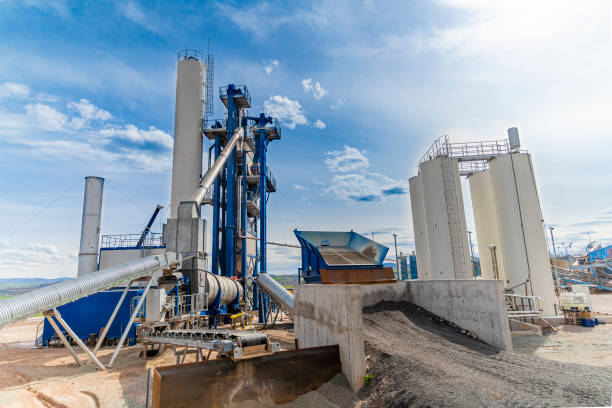
Asphalt, the black, sticky material that paves our roads, is crucial to modern infrastructure, providing a durable, weather-resistant surface. But how is asphalt actually made? The process combines raw materials and sophisticated techniques to produce a substance that withstands heavy traffic and harsh weather.
1. Sourcing Raw Materials
Asphalt is primarily made from bitumen, a byproduct of crude oil. Bitumen is a thick, tar-like substance with adhesive qualities that make it perfect for binding materials together. Along with bitumen, asphalt includes aggregates like crushed stone, sand, and gravel, which give it strength and structure.
2. Mixing and Heating
The asphalt manufacturing process begins at a plant, where bitumen and aggregates are combined. The materials are heated to around 300°F to make them pliable, which ensures they can mix well. This heating process creates what’s known as "hot-mix asphalt."
There are variations in the process:
Hot-Mix Asphalt (HMA): This is heated and mixed at high temperatures and is the most common type used in road construction.
Warm-Mix Asphalt (WMA): Produced at lower temperatures, WMA reduces energy use and emissions.
Cold-Mix Asphalt: Mixed without heating, it’s mainly used for repairs or small-scale projects.
3. Mixing and Coating
After heating, the bitumen and aggregates are blended in a mixer, ensuring the bitumen evenly coats the aggregates. This coating is essential, as it helps the asphalt stay durable and weather-resistant. The mixed asphalt is then loaded into trucks for transportation to construction sites, where it can be laid down and compacted.
4. Transportation and Application
Freshly mixed asphalt is delivered to the construction site, where it is spread evenly by a paving machine and then compacted by rollers. This step ensures a smooth, level, and durable surface that is ready for traffic once it cools and hardens.
Recycling Asphalt: An Eco-Friendly Step
Asphalt is highly recyclable, with old pavement often collected, crushed, and reintroduced into new asphalt mixes. This makes asphalt one of the most recycled materials globally, reducing environmental impact and preserving resources.
From crude oil byproducts to road-ready material, the production of asphalt is a process of transformation, mixing, and precision. Through advancements like warm-mix and recycled asphalt, manufacturers are making asphalt production more sustainable, while keeping our roads strong and reliable.
For all your Asphalt needs call Trinitas today on 405-423-3461







